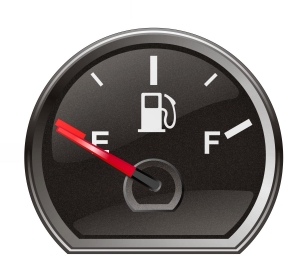
As this year’s RRSP deadline of March 1 looms closer for Canadians, a new Investor Education Fund (IEF) study released Monday reveals that two out of every 10 (19%) Canadians aged 50 and older have no idea how much they have saved for retirement, and half of all respondents believe they will exhaust their retirement savings within the first 10 years after they leave the workforce.
The study also found that four out of 10 (41%) homeowners were clear that the amount they had saved was less than $100,000, with just two out of 10 (21%) having more than $250,000 allocated to their golden years. In addition, when presented with five potential ways of capitalizing on the equity of a home, such as downsizing, selling their home and renting or getting a home equity line of credit, four out of 10 (41%) homeowners were not willing to consider any of the options.
“That Canadians aren’t saving enough for retirement is nothing new, but it is unsettling to learn that homeowners approaching retirement age are so unprepared because they are a comparatively well-off group,” says Tom Hamza, IEF president.
The study also highlights other significant “disconnects” related to retirement decisions:
- One-quarter (24%) of Canadian households have no idea how much they will need to draw from their savings/investments every year after retirement, including their company pensions.
- One-third (33%) of Canadian households do not believe they have enough saved for retirement, and one-quarter are not certain.
- Almost half (48%) of the respondents have never thought about selling their home as a way to generate income to live off of in retirement.
- One-quarter (24%) of homeowners expect to have debt on their principal residence after they retire, with a median debt of $71,000. Of this group, almost one-half (49%) expects to pay the debt from their retirement income, and one-quarter (27%) doesn’t know how they will pay it off.
“Retiring with debt puts extra strain on your income. If you go into retirement with inadequate savings in the first place, you may be on shaky ground,” says Hamza. “Without thorough planning, you may face some tough financial decisions.”
To help Canadians better assess their retirement savings and saving strategy, IEF has launched an exclusive “Retirement cash flow calculator” on its website, GetSmarterAboutMoney.ca. Developed with Ben Barkow, an applied [sychologist and head of the consulting firm Behavioural Team, the calculator estimates how long an investment nest egg will last in retirement. The calculator is complemented by a retirement cash flow planner – a spreadsheet that allows users to predict their retirement cash flow based on changes in spending, investment returns and inflation over time.
GetSmarterAboutMoney.ca has also updated other easy-to-use financial tools and resources for the RRSP season, including the RRSP savings calculator, Pay down debt or invest calculator and Retirement lifestyle quiz.
The study, conducted for IEF by The Brondesbury Group in January 2013, surveyed a group of 1,500 current and former homeowners across Canada. All respondents were at least 50 years old, with half of them already retired. The research addressed three issues for retirement living: household wealth locked into home/property value, home-related debt during retirement and home equity as a source of income during retirement.